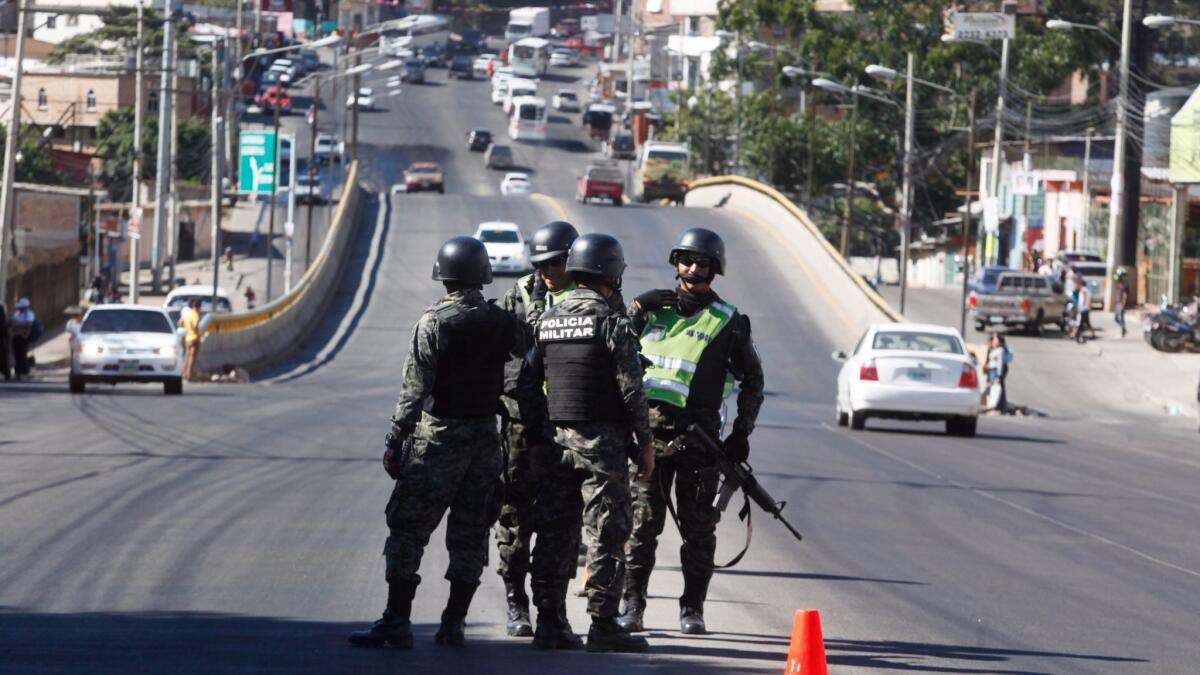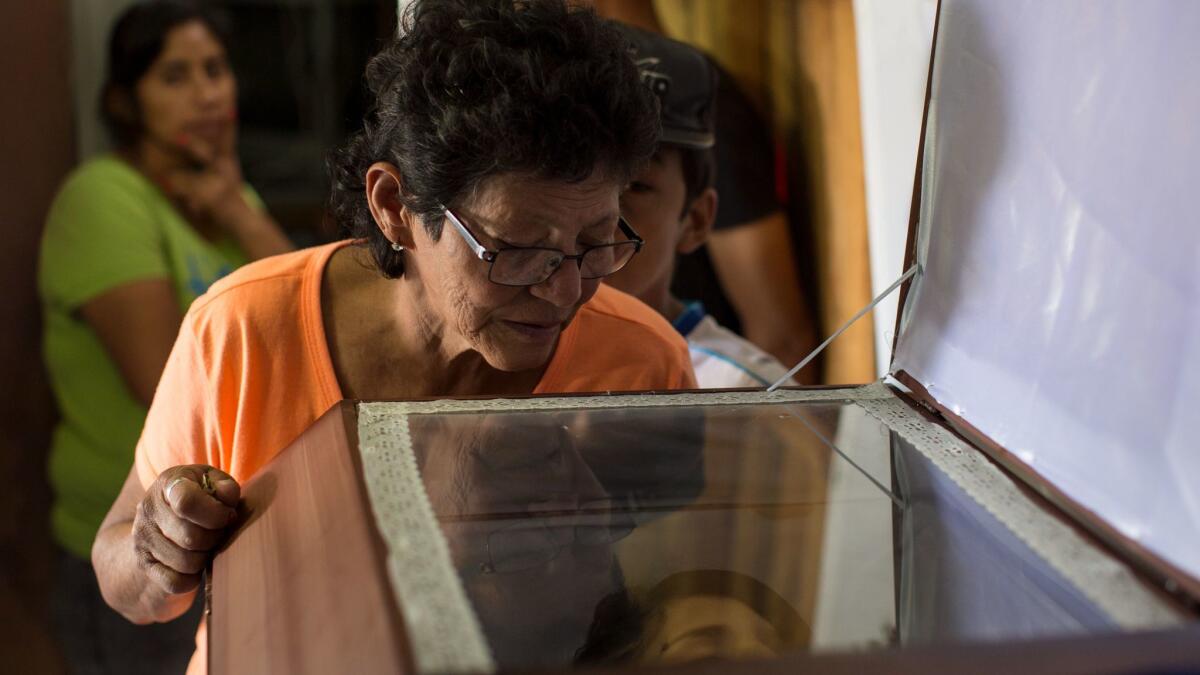Human rights groups denounce Honduras curfew as presidential vote count drags on

- Share via
Reporting from Tegucigalpa, Honduras — An uneasy calm fell over this Central American capital Saturday as police and soldiers enforced a curfew imposed following days of protests and unrest in the aftermath of disputed national elections.
The final results of presidential balloting last Sunday remained unclear as the opposition demanded a review of tens of thousands of ballots that it deemed suspicious.
The last official count, including almost 95% of ballots cast, gave President Juan Orlando Hernandez a narrow lead of about 1.5% over his principal challenger, Salvador Nasralla, a charismatic television personality and relative political neophyte.
Both candidates have declared victory. Intense disagreements about how to proceed to complete the count have frozen the process and resulted in a standoff, raising tensions here and drawing international concern.
The bitter postelection scenario has dramatized the polarized nature of politics in this nation of 9 million, which suffers from vast poverty and the presence of powerful criminal gangs, and which has one of the world’s highest homicide rates.
Honduras has also long been a major source of illegal immigrants to the United States, as its citizens have fled poverty and violence in their homeland.
Supporters of Nasralla, the main opposition challenger, have called the results released so far fraudulent and refused to participate in a final count of about 5% of ballots that authorities say will be subjected to “special scrutiny” because of possible irregularities.
The opposition has demanded a much larger review of disputed ballots. Critics have also cast suspicions on what they call inflated turnout in a number of areas that voted heavily for the reelection of Hernandez.
“These things are unreal,” Nasralla told a local television station Saturday, citing three pro-government provinces where turnout was about 50% higher than in other areas of the country. “We are not stupid.”
The opposition was planning a major protest march on Sunday in the capital, Tegucigalpa.
Activists denounced the dusk-to-dawn curfew — announced on national television and radio late Friday — as a means to stifle protests against what critics called a rigged election process designed to give another term to Hernandez. Authorities said the curfew would be in place for 10 days.
“The curfew is just a means to suppress dissent to this fraudulent election and increase repression,” said Wilfredo Mendez, a human rights advocate who spoke at a news conference of activists assailing the government action.
But authorities said the curfew was essential to curb escalating violence, widespread looting and the erection of road blockades by antigovernment protesters.
The curfew was put in place “to guarantee the safety of the people,” Hernandez told reporters Saturday.
Officials and pro-government media outlets blamed opposition protesters for the wave of looting and pillage. But the opposition said government infiltrators and common criminals were behind the rash of lawlessness.
“I am not calling on anyone to commit violence,” Nasralla told local television, blaming the violence on armed forces “directed by Juan Orlando Hernandez.”
Human rights groups accused police of using excessive force and gunfire against protesters, resulting in at least two deaths and dozens of wounded in Tegucigalpa. Police said various cases were being investigated.
Media accounts of fatalities nationwide in the week’s violence ranged from two dead to half a dozen or more killed. Authorities offered no official comprehensive count.

But police said scores of people had been arrested in suspected looting incidents. Pictures of people carting away televisions and other items from looted stores filled the newspapers.
The protests and violence appeared to have ebbed Saturday, as many shops were closed and people hastened to be off the streets before the 6 p.m. curfew.
“Go to your homes, please,” a TV news host urged viewers as the hour approached.
The streets were largely abandoned at nightfall. Earlier, cleaning crews had cleared many of the makeshift barricades of burning tires and stones that protesters had used to block roads during days of protests.
Honduras has considerable recent experience with large-scale political protests and curfews.
Authorities also imposed a curfew during protests that followed the 2009 coup that ousted former President Manuel Zelaya, who is now a key supporter of Nasralla.
Twitter: @PmcdonnellLAT
Cecilia Sanchez in The Times’ Mexico City bureau contributed to this report.
More to Read
Sign up for Essential California
The most important California stories and recommendations in your inbox every morning.
You may occasionally receive promotional content from the Los Angeles Times.













